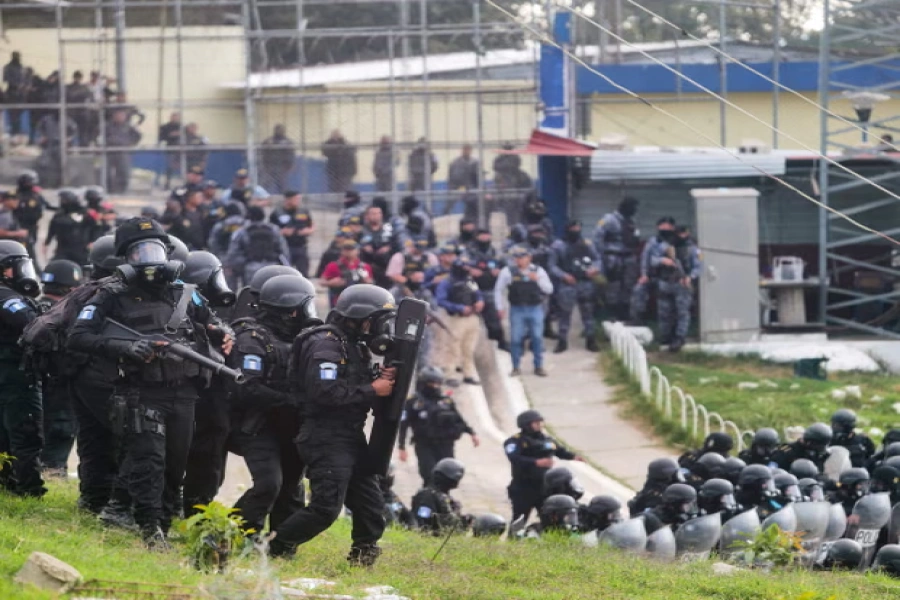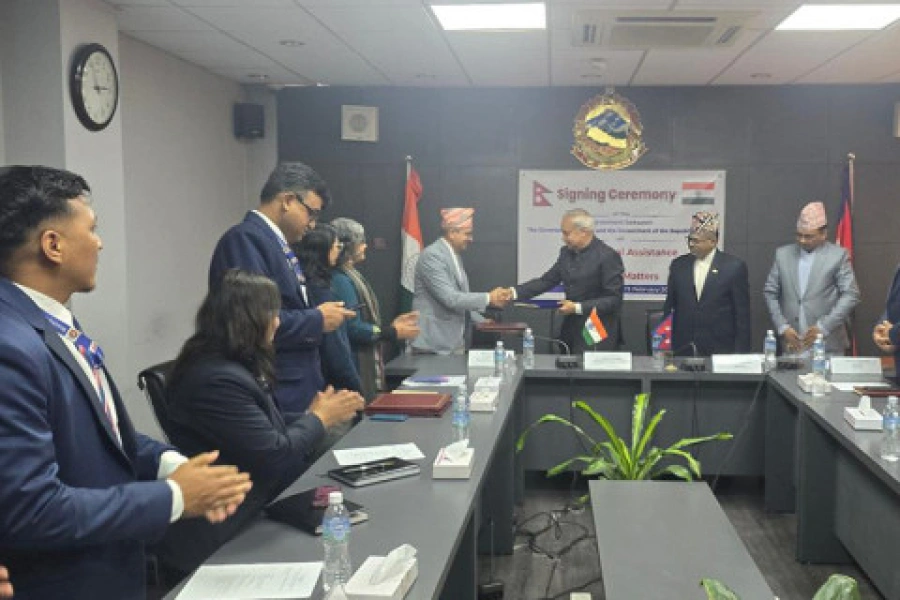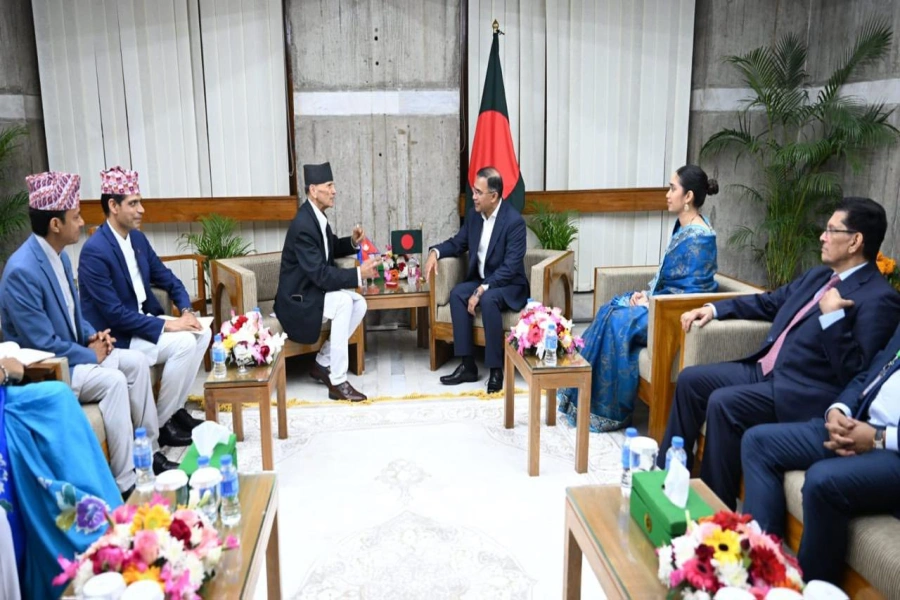The ball is now in the government’s court.
The findings and suggestions may go into a deep freezer or could be used as a bargaining chip to tame this party of overly ambitious brats. One can observe brisk meetings being held, inside and outside the political parties, including PM Oli himself visiting, at the last hour, the investigation committee. These activities signal possible deeper political currents to unfold which we might not be aware of at the moment.
With the submission of its study report by the parliamentary investigation committee (PIC) on the cooperative scandal, there is a new ruckus in the town.
Cheating Clean Chit
RSP members and its die-hard fans are claiming that PIC issued a “clean chit” to Mr Ravi Lamichhane, RSP president. He has been found to be innocent because they cannot prove otherwise; and those accusing him as a sahakari thug say he has sinned (paap lagne) enough for a lifetime. He is now exonerated from all fabricated, ill-wills and false accusations designed to tarnish his image and that of the party. Further, to divert public attention, they point to a new scandal, implicating Mr Dhanraj Gurung, sitting MP as well as Nepali Congress Party, Vice President.
Meanwhile, PIC Chairperson Mr Surya Thapa says that the committee has issued no “clean chits” to anybody. However, Mr Lamichhane’s opponents speak that he now faces “political, legal and moral” obligations, as the report clearly points fingers at him for misusing more than Rs 650 millions fund, illegally diverted to Gorkha Media Network where Mr Lamichhane held equity shares and occupied position of the Managing Director (MD).
India and Nepal are coordinating to minimize damage due to floo...

The Crux of the Report
For the benefit of the non-Nepali readers, to the best of my knowledge and capacity, I have translated here a crucial paragraph from the report. It appears as para 4 of section 18.1.4 of the last chapter entitled “Suggestions and Recommendations” chapter of the report.
The Committee “recommends to the Government of Nepal to take actions, in pursuant to prevailing laws of the land, against the board members - Mr Gitendra Babu Rai, Chairperson, Mr Kumar Lamtel, Member and Mr Ravi Lamichhane, the then MD and Mr Chabbi Lal Joshi, Director - in proportionate to their tenure and the amount of money from the cooperatives, as they are found to be involved in the process of spending or caused spending of money of the depositors of the cooperatives that have been irregularly diverted to the accounts of the Gorkha Media Network Pvt. Ltd.” I don’t think one needs a degree from Harvard or MIT or a lesson or two on paap-dharma to understand this paragraph.
The report is yet to be out in the public. But the media have secured two chapters (17 & 18), out of the 18 chapters, covering a total of 2000 pages.
Lamichhane Chhanbbin Samiti
After a long tussle, on May 28, the PIC was established with a four-point terms of reference (ToR), for a duration of 90 days (extended by 15 more days), composed of seven MPs from five political parties and chaired by Mr Surya Thapa, a sitting MP from CPN-UML. The primary objective of the committee was to investigate problems and challenges faced by the cooperatives and safety measures to protect the savings (ToR #1, 2 and 3). PIC formation was triggered, primarily, by the media revelation of the fraud committed by Gorkha Media Network where RSP president, Mr Lamichhane held MD position (ToR #4). Therefore, it will not be out of context to call PIC as Lamichhane Chhanbin Samiti. The fourth point of the ToR (ToR#4) overshadowed other objectives.
There are some interesting observations to be made about the formation and working of the PIC. At the start, the parties in power (the Maoists, CPN-UML and RSP) declined to form an investigation committee. With the stalling of the House proceedings by Nepali Congress Party, the debate shifted towards drawing ToR contents. Should or should not the ToR be drawn targeting specific person or persons to be investigated? After a long deliberation, they took a mid-path. The Nepali Congress Party dropped the idea of naming Lamichhane in return for investigating Gorkha Media Network and nine other cooperatives, where possible fraud may have been detected. However, by the time the Committee finished its investigation, we saw a major shift in political alliances. Along with the CPN-UML, the Nepali Congress Party is now in power while the Maoists and RSP are in opposition. This amounted to an overnight reversal of roles of some PIC members.
Mea Culpa: Corporate or Individual
When investigation committee was formed, this scribe was having an opinion that the end result will be a sharp division of opinion between PIC members on culpability of the company or an Individual. As the main accused person, Mr GB Rai is at large and there is no doubt on cooperative frauds. Should the mea culpa rest on the individuals - who work as employees of Gorkha Media Network or on the company itself as a legal person? In anti-corruption literature, punishments can be passed on to the companies as well as to the individuals (Board Directors, Members and Managers). This depends on your approach, that is, whether you take preventive or punitive approaches. If you take preventive approach you punish the company, otherwise, you punish individuals. Given the debate taking place inside the parliament over the issue of amending anti-corruption laws, I expected PIC opinion to be divided along these lines - preventive vs punitive stands.
Lamichhane Mea Culpa
However, the stand taken by the PIC members turn out to be different, albeit there are preventive and punitive measures. The report did not find any concrete evidence to implicate Mr Lamichhane responsible for mobilizing cooperative funds. This must be the reason why RSP honchos are claiming for “clean chits”. But the report categorically says that he, in the capacity of an equity holder as well as an MD, is responsible for utilizing the money, secured from cooperatives. Since the very idea of channeling cooperative money into non-member companies is illegal business in itself, he cannot be exonerated from the possible crime, nor an excuse be made by saying he is not aware of the source of money. This is similar to holding both the buyers and the sellers responsible for transacting on stolen goods. The argument given by Mr Lamichhane looks like this: He is not responsible for inputs (securing cooperative funds) but as an MD of the company, responsible for processing the funds. Remember him giving an analogy of a taxi driver? As a taxi driver, he cannot be held responsible for the source of money used to buy that taxi.
Beside this, the report has pointed out another case of forgery, that is, related to fake transfer of his 15 percent equity shares, which he has called “sweat shares”. He may be exonerated from cooperative fraud cases, but this fake transfer of ownership shares could be an albatross in itself.
What next?
The ball is now in the government’s court. Definitely, cooperative fraud is not the priority agenda of this new coalition. The findings and suggestions may go into a deep freezer or could be used as a bargaining chip to tame this party of overly ambitious brats. One can observe brisk meetings being held, inside and outside the political parties, including PM Oli himself visiting, at the last hour, the investigation committee. These activities signal possible deeper political currents to unfold which we might not be aware of at the moment.





































